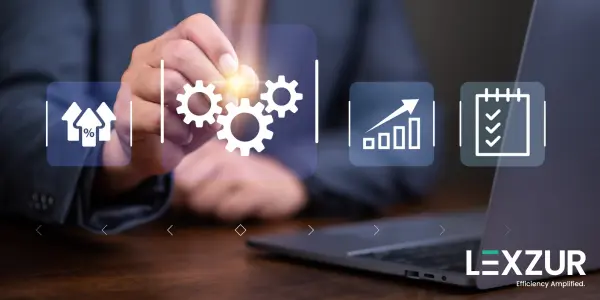In today’s intricate and globally-connected business environment, the complexities of managing contracts have expanded, making traditional methods feel like attempting to traverse a maze with just a flickering candle as guidance. Modern contract management is not merely about organizing and storing signed agreements. It’s an intricate journey that encompasses planning, monitoring, negotiating, ensuring compliance, and execution from the beginning to the culmination of any contractual relationship. With the dawn of contract management software, this convoluted process has been significantly simplified. But understanding the evolving roles and responsibilities of those at the helm of these contracts, and recognizing how software can enhance their capacities, is crucial. This exploration into the heart of digital-age contract management sheds light on the transformative power of technology in merging the realms of law, business, and strategy, ultimately driving increased efficiency, compliance, and competitive advantage in business dealings.
When embarking on the journey of contract management, it’s essential to delineate the roles and responsibilities, especially when software is in the mix. With software streamlining the process, what exactly are the implications for professionals?
The Changing Landscape of Contract Management
Contract management, a core function in many businesses, is experiencing a significant transformation. Traditional practices are being reshaped by technological advancements, evolving business needs, and a changing global economic landscape. Here’s a deep dive into how the landscape of contract management is changing:
- Evolution of Traditional Methods: Not too long ago, contract management was all about paperwork, filing cabinets, and physical signatures. But, like sand through an hourglass, times have changed.
- Role of Digital Advancements: Nowadays, software solutions dominate the scene, making processes more efficient. So, how does this shape the responsibilities of those in the trenches?
- Contract Management Automation: tasks like data extraction, contract generation, and even risk assessment are being automated, leading to quicker turnaround times and reduced manual errors.
- Cloud-based Systems: Centralized storage systems have made it easier for stakeholders to access and collaborate on contracts from anywhere in the world.
- Collaborative Platforms: The rise of collaborative platforms allows cross-functional teams, from legal to procurement to sales, to work together seamlessly on contract creation, negotiation, and execution.
- Risk Management: CLM systems can predict potential risks by analyzing contract terms against historical data and market conditions.
- Digital Signatures: Smart CLM systems like Contra support e.Signatures and integration with tools, like DocuSign, to provide authentic Electronic Signatures, saving an abundance of time and effort for all involved in the process.
Contra: The Best Contract Management Software for All Teams Across all Industries
Essential Roles in Contract Management:
- Contract Creators: These are the folks drawing up the contracts. With software, templates and AI-driven suggestions can speed up their work.
- Negotiators: Not to be mistaken with your regular hagglers at the market, these professionals fine-tune contract details, benefiting greatly from software’s comparison tools.
- Reviewers: Before any ink (or, in today’s world, digital signature) hits the paper, reviewers ensure all terms are agreeable. With software, they can track changes, comment, and collaborate efficiently.
- Executors: Once everyone gives the green light, these individuals ensure the contract is properly executed, a process made hassle-free with software.
- Auditors: When it’s time to ensure compliance or review a contract’s effectiveness, auditors step in, appreciating the software’s organized, easily accessible data.
Responsibilities Enhanced by Contract Management Software
- Automated Drafting: Now, contracts can be easily drafted by using pre-saved templates and configured workflows.
- Automated Approval Centers: Set a defined approval centre or authority matrix where you can assign who can approve contracts or view documents in any format.
- Automated Alerts: No more sticky notes! Software can remind you of deadlines and milestones.
- Data Integration: Import, export, analyze. The software ensures seamless data flow so professionals can focus on decisions, not data entry.
- Archival and Retrieval: Searching for a contract? It’s just a click away rather than a dive into a dusty archive room.
- Monitoring Performance: With real-time analytics, evaluating contract performance and making swift decisions is easier than ever.
- Security and Compliance: No more sleepless nights worrying about breaches or non-compliance. Modern software has got you covered!
Challenges and Solutions for Better Contract Management
- Training and Onboarding: New software can be daunting, but comprehensive training can overcome this hurdle.
- Integration with Legacy Systems: Here’s where tech support becomes a lifesaver, ensuring the old and the new coexist harmoniously.
- Cost Implications: Software solutions can be an investment. However, their ROI in terms of time and resource saving can’t be ignored. Check Contra Pricing
FAQs
How has software transformed contract management?
Contract management software has revolutionized contract management by automating tasks, ensuring data integration, improving security, and enhancing collaboration.
What are the primary roles in contract management?
Roles include contract creators, negotiators, reviewers, executors, and auditors.
How do responsibilities shift when using contract management software?
Software streamlines and automates many responsibilities, allowing professionals to focus on decision-making rather than manual tasks.
Is training required to use contract management software?
Yes, to maximize the benefits and ensure smooth operations, proper training is crucial.
What challenges might one face when integrating software?
Challenges can include training, integration with old systems, and cost implications. However, the benefits often outweigh these challenges.
What’s the future of contract management software?
The future is bright with AI, machine learning, blockchain, and enhanced remote collaboration on the horizon.
Latest Trends in Law Tech Landscape
For deeper insights into the recent advancements in the legal tech arena, tune into our legal tech podcast episode. Legal Tech Expert Mark Beer, OBE, joins Lexzur’s CEO, Feras EL Hajjar, to delve into the newest breakthroughs in Legal Technology, the emergence of AI, and its impact on the contemporary legal scene.








Leave a Comment